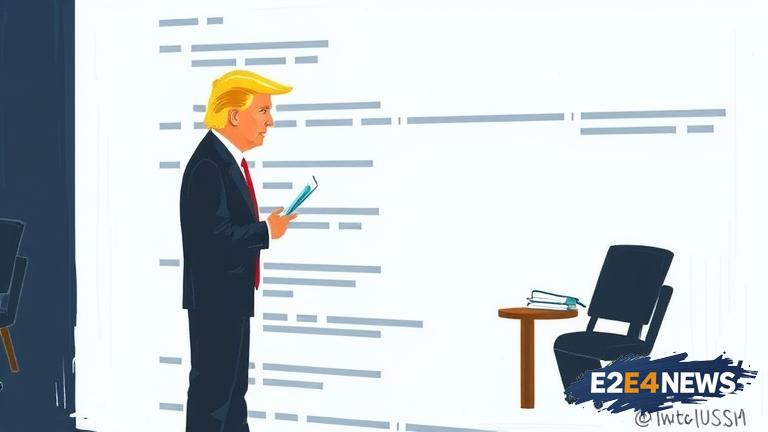The Trump administration has taken a significant step in monitoring school emails, a move that has been met with widespread criticism and concern. The decision, which was announced recently, aims to track and monitor emails sent and received by students and staff in schools across the country. The administration claims that this move is necessary to ensure student safety and prevent potential threats, but many are questioning the true motives behind this decision. Educators, students, and parents are worried about the implications of such a move, citing concerns about privacy and the potential for surveillance. The monitoring of school emails is seen as an invasion of privacy, and many are worried about the impact it could have on the freedom of expression and the ability of students to communicate freely. The Trump administration has argued that the monitoring is necessary to prevent cyberbullying, harassment, and other forms of online abuse, but many are skeptical about the effectiveness of such a measure. The decision has sparked a heated debate about the role of government in monitoring online activity, with many arguing that it is an overreach of authority. The American Civil Liberties Union (ACLU) has spoken out against the decision, citing concerns about the potential for abuse and the impact on student privacy. The organization has argued that the monitoring of school emails is a form of mass surveillance, and that it could have a chilling effect on free speech. Many educators are also speaking out against the decision, arguing that it could create a culture of fear and mistrust in schools. The monitoring of school emails could also have a disproportionate impact on marginalized communities, who may already feel vulnerable and targeted. The decision has also raised concerns about the potential for bias and discrimination, with some arguing that the monitoring could be used to target certain groups or individuals. The Trump administration has not provided clear guidelines on how the monitoring will be carried out, or what criteria will be used to determine what constitutes a ‘threat’. This lack of transparency has added to the concerns and uncertainty surrounding the decision. Many are also worried about the potential for the monitoring to be used for political purposes, or to suppress dissenting voices. The decision has sparked a wider debate about the role of technology in education, and the need for greater transparency and accountability in the use of digital tools. As the debate continues to unfold, it is clear that the monitoring of school emails is a complex and contentious issue, with far-reaching implications for students, educators, and the wider community. The Trump administration’s decision has highlighted the need for a nuanced and informed discussion about the use of technology in education, and the importance of protecting student privacy and promoting digital literacy. Ultimately, the decision to monitor school emails raises important questions about the balance between safety and freedom, and the need for a more thoughtful and considered approach to the use of technology in education. The controversy surrounding the monitoring of school emails is likely to continue, with many calling for greater transparency and accountability from the Trump administration. As the situation continues to evolve, it is clear that the monitoring of school emails is a critical issue that requires careful consideration and thoughtful debate. The impact of the decision will be closely watched, and it is likely that the controversy will have far-reaching implications for the education sector and beyond.
